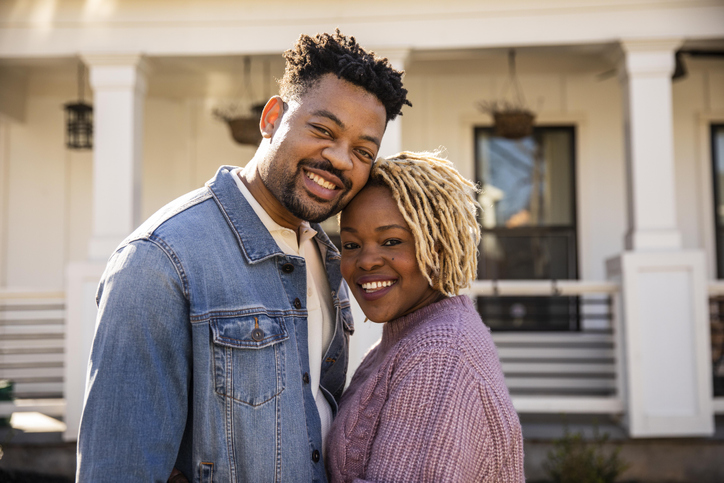
Source: MoMo Productions / Getty
Though most marry for love, marriage can also be a wise business move depending on whom you’ve chosen to betroth. Take Beyoncé and Jay Z, for example. They are both wildly successful as individuals; however, as a couple, they’re an unstoppable machine. That said, marriage is most certainly not for everyone. Some people recognize very early on that they love their partner, want to spend the rest of their life with said partner, but they have very little interest in tying the knot. If that sounds like you or you just happen to be in a serious relationship with no intention of marrying any time soon, you may be wondering about what this means for property ownership. Should the decision not to marry mean that you shouldn’t pool resources with your equally successful partner to purchase real estate? It really depends on who you ask.
There are many legal perks of being married and one of them is a form of ownership called tenancy by the entirety. Tenancy by the entirety, according to Investopedia is “a form of shared property ownership that is reserved only for married couples. A tenancy by the entirety essentially permits spouses to jointly own property as a single legal entity. This means that each spouse has an equal and undivided interest in the property. This form of legal ownership creates a right of survivorship so if one spouse dies, the surviving spouse automatically receives the full title of the property.” Further, under tenancy by the majority, one party can’t sell or give away their interest in the property without the consent of their spouse.
But what does this mean for long-term partners who have chosen not to wed? We spoke to two experts on the subject to get their take.
Don’t do it.
“I personally do not think that it is a good idea for unmarried people to buy real estate. It could be real estate to live in or as an investment — either should not be bought by romantic partners,” Ja’Net Adams, CEO of EMACK Consulting tells MadameNoire. “Mainly because it is too risky. Real estate is a lot of debt so if someone decides to walk away then the other is left on the hook for the debt. Debt they will have to pay or allow the real estate to go into foreclosure. It is always a slippery slope when going into a financial contract agreement with another person, especially one that you are not married to.”
Do it, but under one condition.
Louisiana Attorney J. Andrew Murrell is not completely against unmarried couples purchasing real estate together, but conditions need to be put in place to protect both parties from the finicky nature of some relationships. Murrell recommends that unwed couples form an LLC if they are seeking to go half on a home.
“Without forming an LLC or corporate structure, the unmarried partners would have little to no accountability to one another,” Murrell tells MadameNoire. “The volatility of romantic partners purchasing property could hinder the ability of the property to produce income. This however also exists with married couples.”
Murrell went on to explain that what is most important for partners who desire to buy real estate is not their marital status, but their level of commitment to one another.
“In the end, purchasing a property with another person, romantic, married, or platonic, requires a serious commitment that should not be entered into lightly,” Murrell adds. “My biggest concern is not the status of the partner’s relationship, but rather, their personal liability from buying a home in their individual names.”


